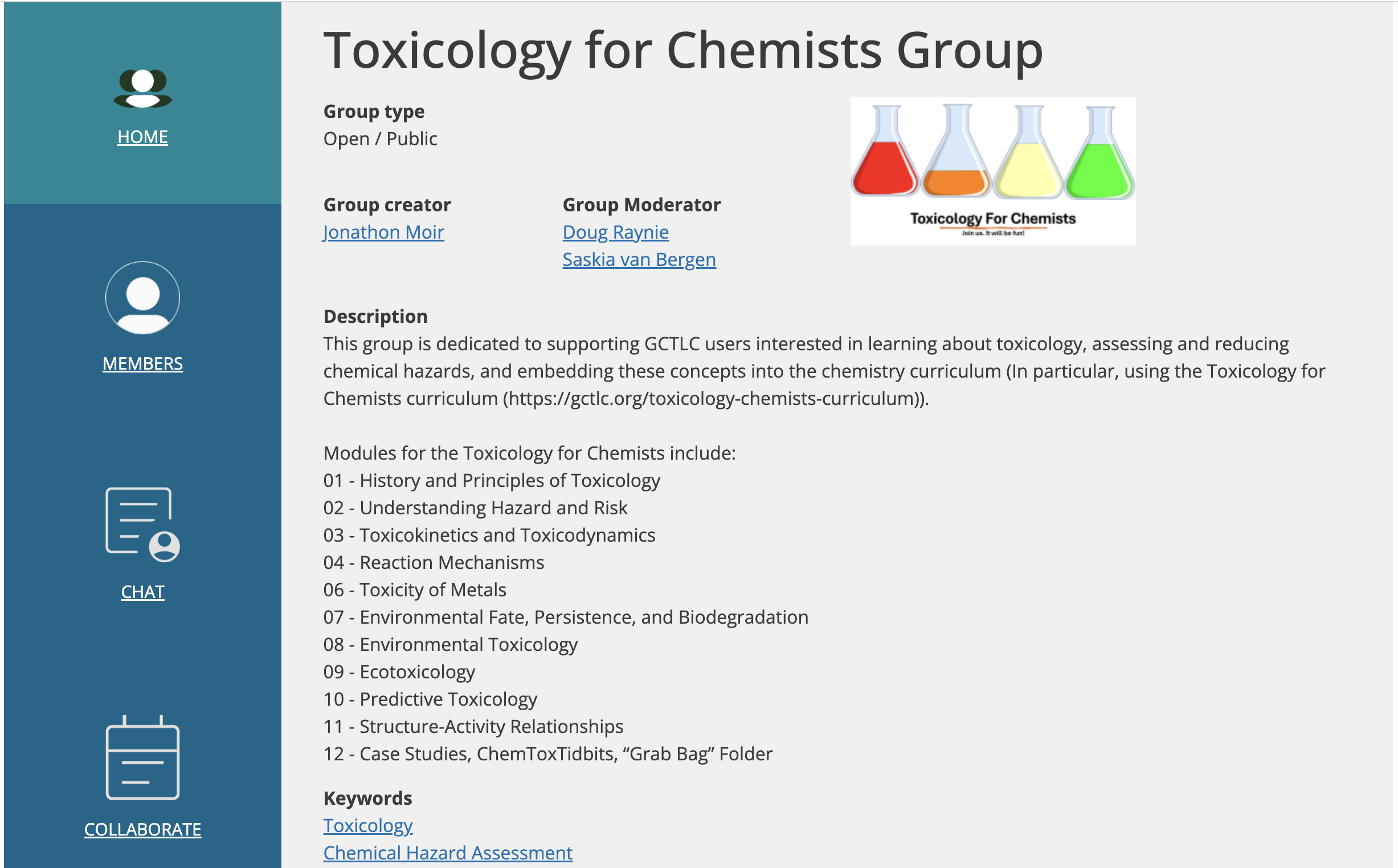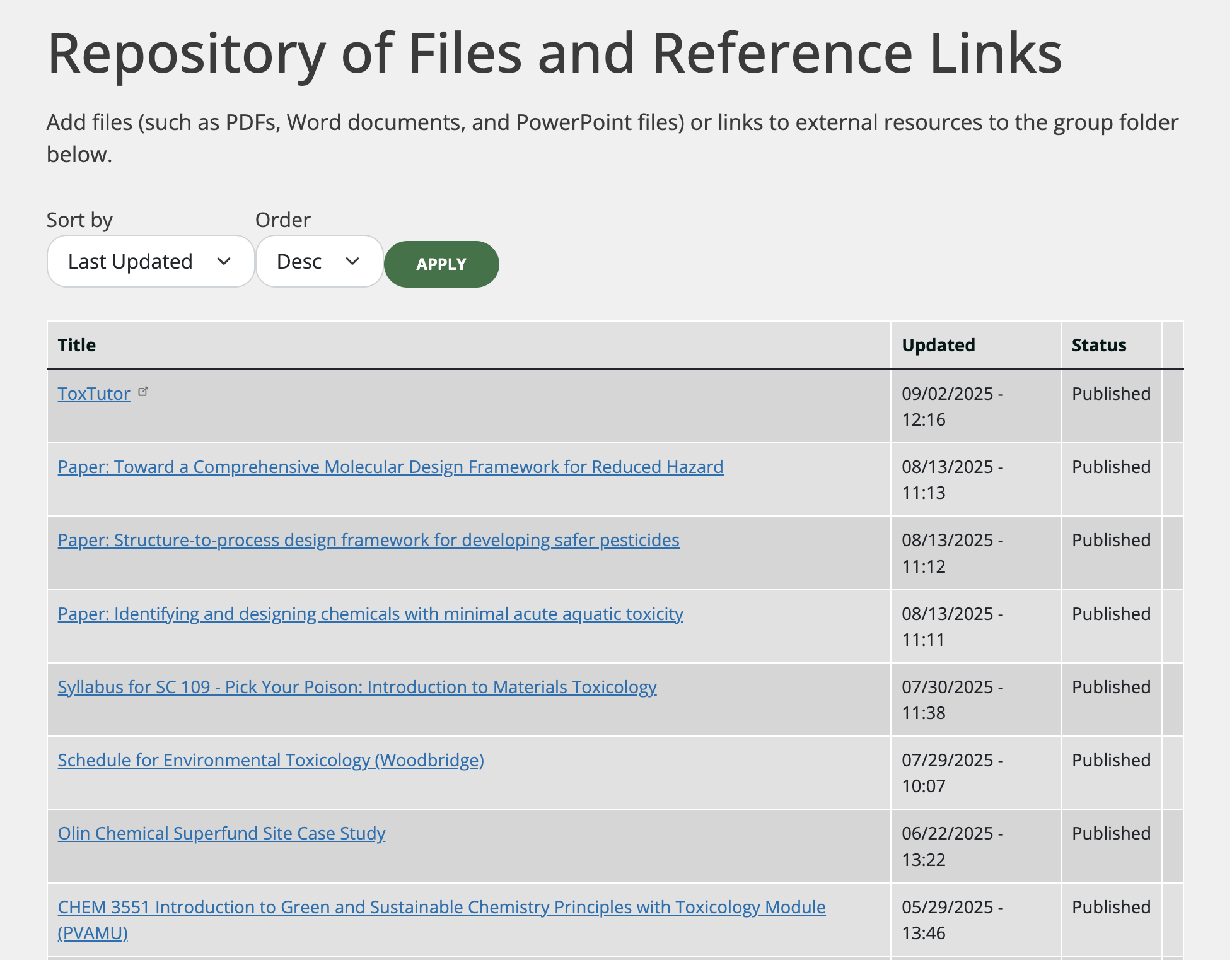Building Collaborative Spaces with Drupal Groups

The Challenge
The green chemistry education community needed a platform that could accommodate diverse collaboration requirements across different user types - from K-12 educators and university faculty to student leaders and industry professionals. The challenge was creating a system that could:
- Support both open collaboration and private expert discussions
- Manage varying levels of content sensitivity and access requirements
- Provide intuitive group management for non-technical users
- Maintain academic standards through proper moderation workflows
- Enable seamless resource sharing while respecting ownership rights
- Scale to accommodate growing community participation
Traditional learning management systems and simple forums couldn't provide the nuanced permission structures needed for this diverse academic and professional community.

The Solution
In 2023, Beyond Benign and the American Chemical Society Green Chemistry Institute partnered with Skvare LLC to launch the Green Chemistry Teaching and Learning Community (GCTLC) platform, leveraging Drupal's powerful Group module to create a comprehensive collaboration platform for GCTLC with six distinct group types, each designed for specific use cases:
Group Types and Permissions
- Open/Public Groups: Fully accessible to anonymous visitors and open for anyone to join
- Open/Community Groups: Visible to registered users only, but open for joining
- Request/Public Groups: Visible to anonymous users, but membership requires approval
- Request/Community Groups: Visible to registered users, and membership requires approval
- Invitation Only/Community Groups: Visible to registered users, but require membership is by invitation only
- Invitation Only/Group Only Groups: Completely private, visible only to group members

Advanced Features Implemented
- Smart Notification System: Email alerts for new discussions, resources, and files with user-controlled preferences
- Comprehensive Moderation Workflow: Multiple states, including submitted, revisions requested, pending rejection, and archived status
- Flexible Resource Management: Group-based permissions with ownership tracking and automatic permission removal upon leaving
- Enhanced Discussion Tools: Improved forum functionality with real-time comment counts and email notifications
- Multi-User Invitations: Streamlined process for inviting multiple community members simultaneously
- SEO-Friendly URLs: Group names in URLs instead of numeric IDs for better discoverability
Technical Implementation
Skvare implemented the solution utilizing Drupal's native user management system, which was integrated with the Group module's permission inheritance. The development team created custom functionality to ensure that when members leave groups, their access to private resources is automatically revoked, maintaining security and respecting intellectual property rights. Skvare also implemented enhanced user experience features, including SEO-friendly URLs and streamlined multi-user invitation processes.
Why Drupal Was Chosen
GCTLC and Skvare selected Drupal for its unmatched flexibility in handling complex permission structures and user management requirements. The Group module's sophisticated access control system, combined with Drupal's robust content management capabilities, provided the foundation for building a platform that could grow with the community's evolving needs.
The open-source nature of Drupal also aligned with the community's values of knowledge sharing and collaborative development, while ensuring long-term sustainability.
The Impact
The Groups feature of the GCTLC has already accelerated the development of connections between users who normally wouldn’t interact, including by:
- Enabling Specialized Learning Communities: Educators from around the world can join subject-specific groups for targeted discussions and resource sharing
- Supporting Collaboration: Private groups provide spaces for educators to collaborate on sensitive or unpublished projects
- Democratizing Knowledge Access: Public groups ensure important information reaches the broadest possible audience
- Streamlining Professional Development: Request-based groups allow practitioners to join relevant professional networks
The platform has successfully created a deep sense of belonging and welcoming atmosphere for users from different career stages and countries to collaborate and share information, creating a unified space where knowledge flows freely while respecting the need for controlled access to sensitive materials.

Key Benefits
- Granular Access Control: Six group types provide precise control over who can see and participate in discussions
- Automated Content Management: Smart permissions automatically handle resource access when membership changes
- Enhanced User Experience: Intuitive interfaces make complex group management accessible to non-technical users
- Scalable Architecture: Built on Drupal's proven scalability to handle growing community participation
- Community-Driven Moderation: Flexible moderation states support community self-governance
- Mobile-Responsive Design: Full functionality across desktop and mobile devices
- Integration-Ready: API-first architecture allows integration with other educational tools
Results and Outcomes
Skvare implemented a sophisticated group management system using Drupal that enables educators, advocates, and green chemistry champions to form specialized learning communities. The Groups feature has transformed how the green chemistry community collaborates by providing:
- Six distinct group types with granular permission controls for different collaboration needs
- Private collaboration spaces for sensitive discussions and invitation-only expert groups
- Public community groups that welcome broad participation and knowledge sharing
- Flexible moderation system ensuring content quality while maintaining community standards
- Seamless resource sharing within groups while protecting intellectual property rights
- Real-time notifications keep members engaged and informed of group activities
The GCTLC Groups feature demonstrates how Drupal's flexibility and the Group module's sophisticated permission system can create powerful collaboration platforms that serve diverse community needs while maintaining security, usability, and scalability. This project exemplifies Skvare's mission of helping others help others by empowering the green chemistry community to collaborate more effectively and advance sustainable chemistry education worldwide.